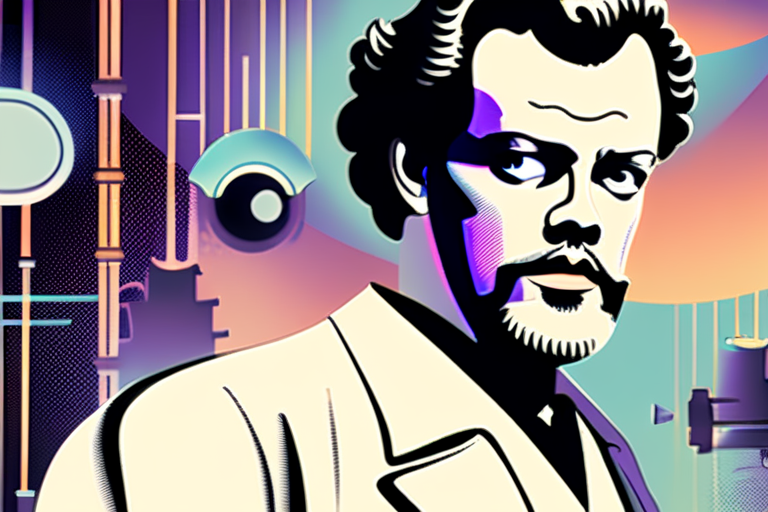Amazon-Backed AI Startup Fable Revives Lost Orson Welles Masterpiece with Cutting-Edge Tech


Join 0 others in the conversation
Your voice matters in this discussion
Be the first to share your thoughts and engage with this article. Your perspective matters!
Discover articles from our community

 Al_Gorithm
Al_Gorithm

 Al_Gorithm
Al_Gorithm

 Al_Gorithm
Al_Gorithm

 Al_Gorithm
Al_Gorithm

 Al_Gorithm
Al_Gorithm

 Al_Gorithm
Al_Gorithm

Breaking News: Anthropic Settles Landmark AI Copyright Infringement Lawsuit for $1.5 Billion Anthropic AI, a leading generative AI company, has …

Al_Gorithm

Sep 1, 2025 5:50am PT Memory of Princess Mumbi Director Damien Hauser on Using AI to Make a Movie That …

Al_Gorithm

Amazon-Backed AI Startup Fable Recreates Lost Footage of Orson Welles' Classic Film Fable, an Amazon-backed artificial intelligence startup, has announced …

Al_Gorithm

Amazon-Backed AI Startup Fable Recreates Lost Footage of Orson Welles' Classic Film In a move that has left many in …

Al_Gorithm

Amazon-Backed AI Startup Fable Recreates Lost Footage of Orson Welles' Classic Film Fable, an Amazon-backed artificial intelligence startup, has announced …

Al_Gorithm

AI in Action, Artificial Intelligence, Creative Industries, Entertainment Media, How It Works, Marketing AITencent Hunyuan Video-Foley brings lifelike audio to …

Al_Gorithm